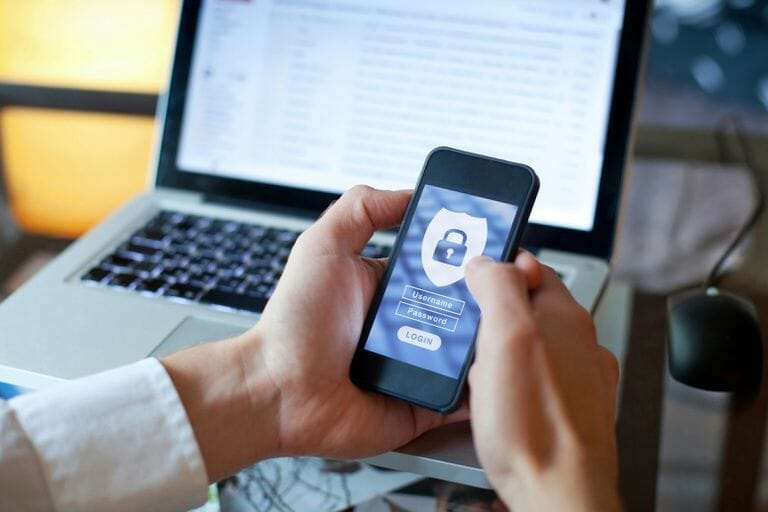You’ve just learned of another data breach, and your personal information may have been compromised this time. You may begin to panic as you try to figure out if you are one of the victims. Has any of your personal information been compromised? What can you do to safeguard yourself?
If your personal information has been compromised due to a data breach, you may be more vulnerable to identity theft. That is why it is critical to understand what to do in the aftermath of a data breach.
The measures you should take following a data breach are frequently determined by the violated organization’s category and the sort of information released. A healthcare data breach, for example, may reveal more sensitive health information and jeopardize your medical care. In contrast, a financial data breach may involve your credit, bank accounts, and other money-related data.

Could you be the next victim of a data breach?
In reality, the question should be, why wouldn’t you be the next victim of identity theft if you’ve very much disclosed your private, financial, and official data over the internet, whether through social media or government websites? Hackers and identity thieves are becoming more sophisticated than we, the consumers. They are more knowledgeable about privacy than we are as customers. That is why it is becoming simpler for them to acquire access to our information and use it against us. To find out which of your personal information is readily available online, visit Nuwber. The site will show the information that the internet can find through your public records and social media. You can be more cautious this way.
5 types of data breaches
There are several types of data breaches. It’s critical to understand these five sorts of data breaches and how to help protect yourself from the many types of risks that might follow.
1. Healthcare data breach
When the information you’ve submitted to your healthcare organization, doctors, or insurance companies is exposed or accessed by an unauthorized individual, this is referred to as a healthcare data breach.
What causes this to happen? Cybercriminals may get access to your doctor’s office, hospital, medical lab, healthcare insurer, or any of your medical providers’ computer networks. In some situations, medical personnel may steal your information, or it may be mistakenly exposed due to inadequate data protection. This information could then be used for various types of fraud.
2. Financial data breach
When a corporation exposes financial information, such as your credit card or bank card account details, this is referred to as a financial data breach.
Financial identity theft occurs when a cybercriminal utilizes your PII, such as your Social Security number, for financial advantage.
The fraudster may use a combination of your name and other personal information to apply for loans, credit cards, or bank accounts or remove funds from your accounts. Credit card fraud, bank fraud, computer fraud, wire fraud, mail fraud, and employment fraud are all possible offenses.
3. Government data breach
A government data breach happens when sensitive information from federal, state, or local government entities is stolen, mistakenly revealed, or leaked. The military is included in this.
Government data breaches may be particularly damaging if the information hacked contains more sensitive details such as your Social Security number and date of birth.
In dealings with the government, fraudsters may utilize your personal information. One example is tax-related identity theft or tax refund fraud, often known as stolen identity refund fraud.
This sort of fraud happens when a thief files an income tax return using your SSN and other personal information to collect your tax refund. This is equivalent to stealing money from the United States Treasury.
4. Education data breach
The number of educational institution breaches has increased in the past few years. Universities are frequently targeted because they gather a large amount of sensitive data about students and their guardians, as well as teachers and staff, to satisfy the multiple requirements of applications, financial assistance, attendance, and employment.
Students just starting out on their own may be particularly vulnerable. They may be handling their finances and other accounts for the first time.
Because students have better credit and financial histories, cybercriminals may target them to steal their identities.
5. Entertainment data breach
When your personal information is compromised at organizations such as video game makers or concert and athletic event ticketing providers, an entertainment data breach happens. What causes it to happen? A leak from within the firm, whether deliberate or unintentional, weak data security, a broken application, malware, or other hacker schemes.
How Can You as a Consumer Save Yourself from a Data Breach
- Rule number one is to provide as little information as possible on your social networking platforms or other public forums. The more data you give away about yourself, the easier it is for these hackers to read you.
- Keep a keen eye on your bank statements. Even if you don’t care about your bank statement, you should keep a weekly, if not daily, check on it.
- The most common and ridiculous error that customers make is clicking on unsafe links. We, as internet users, are just drawn to particular things and click on links without considering that they may be a hacking link or a connection that would let a hacker into our phone or computer.
- Change the passwords for your email accounts, computer, and even your ATM PIN code (if possible) regularly.
- Most people have anti-virus software and apps installed on their phones and laptops. If you are among the overwhelming majority of individuals who believe anti-virus software is useless, you should reconsider your options and get it installed because it plays a crucial part in keeping your information safe.
Final words
Take the most basic and required precautions to prevent becoming the next data breach victim. One would not want to jeopardize their company’s and personal reputation by ignoring data security. Investing in data protection is far preferable to wasting money and effort recovering from a data breach or cyber-attack.













